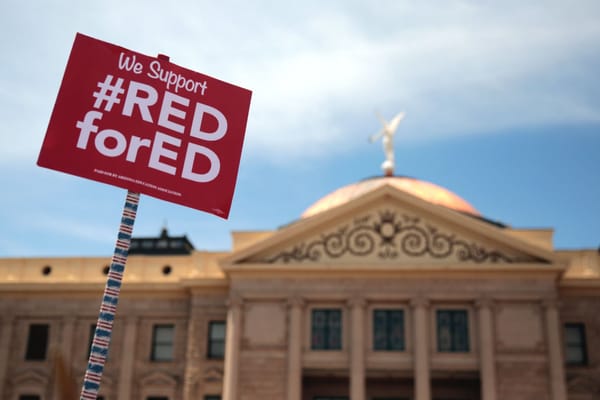Last month, Doug Ducey, the governor of Arizona, signed into law a school voucher system that would give $7000 for educational expenses to parents who want to pull their children out of public school. School-choice advocates celebrated this as a triumph for equality of opportunity. No longer held captive by low-performing government schools, less-affluent parents will now have the means to enroll their children in a private school, charter school, microschool pod, or homeschool.
Yet even as Arizona increases educational choices, it risks diminishing their quality. Shortly after enacting the voucher law, Arizona enacted another law that lowers education requirements for teachers. Before the law, most public school teachers were expected to earn a college degree, pass at least two certification exams (one in pedagogy, the other in the course being taught), and complete a semester of student-teaching. Now teachers only have to be enrolled in college to start teaching.
As of this winter, 26 percent of teacher vacancies in Arizona went unfilled, leaving 2,000 classrooms without a teacher of record. Not coincidentally, Arizona teachers are the worst paid in the country. Unsurprisingly, Arizona public schools also rank among the worst in the nation, with high dropout rates and low test scores. Unwilling to offer more compensation to attract more skilled teachers who could help save their failing schools, the state legislature has essentially decided to hire any person who’s interested in teaching.
Because of the combination of these two laws, Arizona’s education system—both private and public—is in danger of falling farther behind. Those who think that schools can't become worse are wrong. When standards aren’t enforced and money is there for the taking, gimmicks and fraud become rampant.
